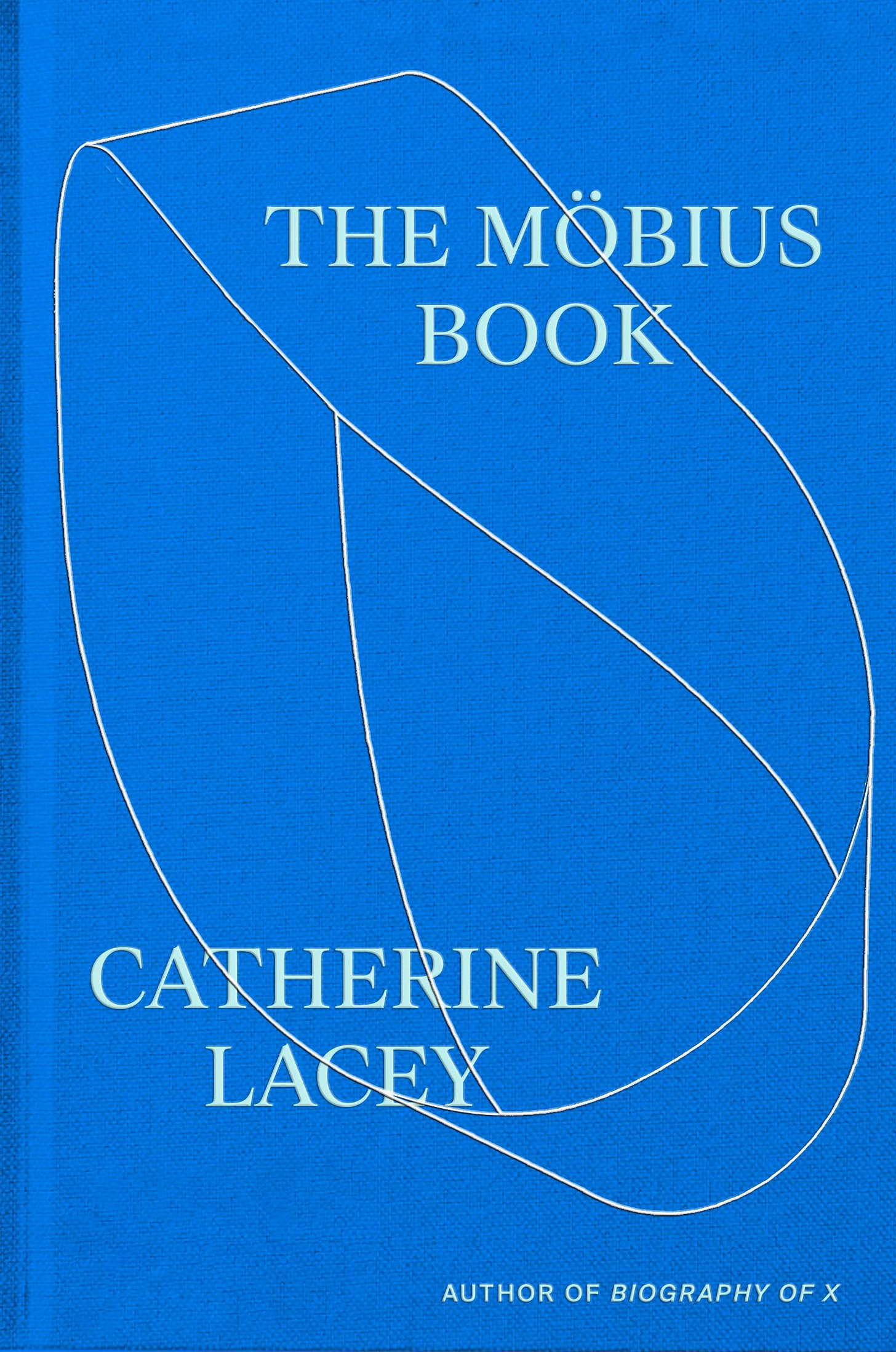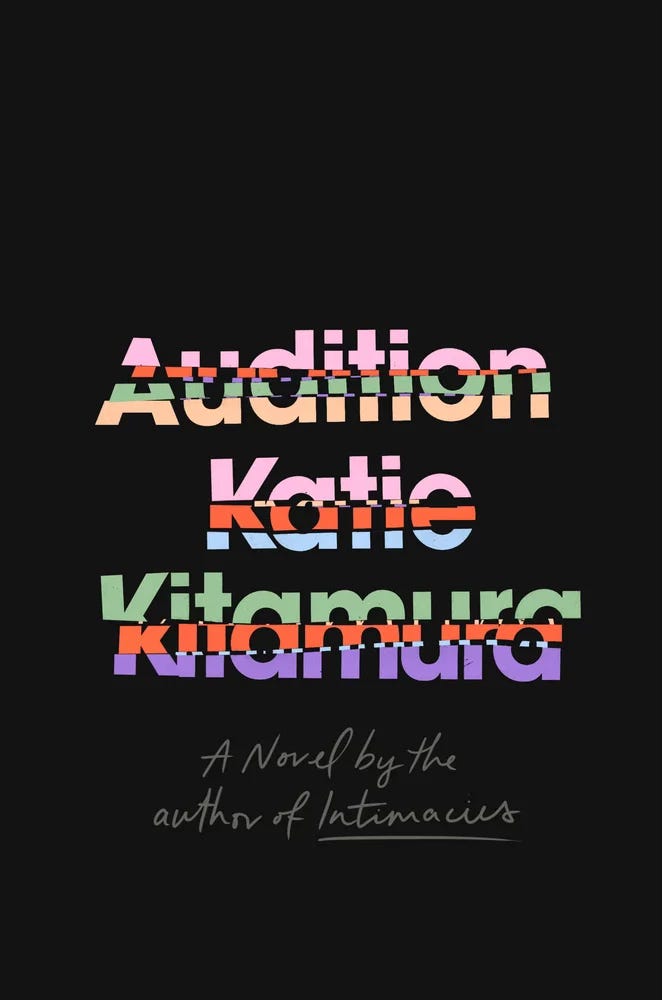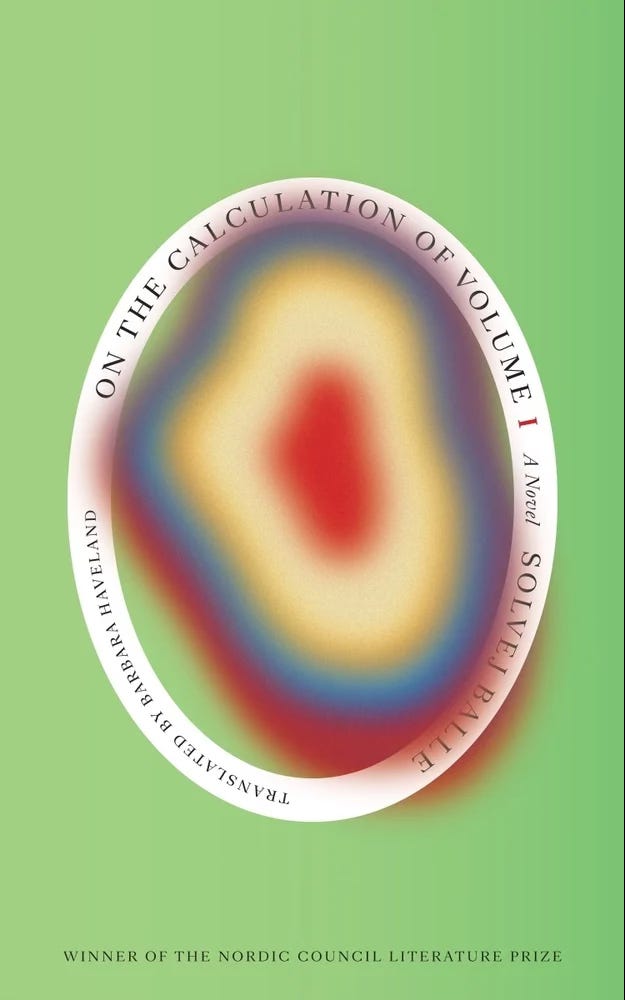Dear readers,
I’m noticing a trend in some of this year’s most anticipated books: narratives that fold in on themselves. For April, here’s a menu of books carefully constructed to loop back through time or to travel again through the story itself in a way that fuses the beginning and end.
This kind of tension, trapping the reader between a story and its echo, gets me excited in a way that feels almost embarrassing to admit— it must be one of my reading kinks.1 Like just about any kink I know of, enjoying it requires psychological subtlety and willingness to make oneself vulnerable to misunderstanding. This also creates great potential for frustration. Love it or hate it—there’s rarely middle ground with this kind of narrative trickery.
This month I hope to get a little closer to understanding what makes a narrative loop feel so pleasurable when it works, and what spoils the effect.
The Möbius Book
Catherine Lacey
June 17, available for Pre-Order
240 pp.
Lacey records the aftermath of betrayal and breakup that sent her couch surfing among her friends, pending the sale of the mortgaged home she’d shared with her partner. Her loss of appetite, coupled with a hunger for casual sex, recalls her teenage response to giving up on her zealous faith in Christ. In these pages you’ll find rage, weeping, a little bondage, and an actual exorcism— the treatment of ex-as-demon is as unabashedly single-edged as you might expect from a book with this title.
Möbius consists of two books in one; the first carries the typical legal disclaimer for fiction while the second is named a work of non-fiction. Together the first-person narratives cycle through patterns of behavior, exploring an unsettling aspect shared by love and faith: the impossibility of accessing the other side, the necessity of unknowing belief, even in the most intimate relationships.
Audition
Katie Kitamura
April 8 (next Tuesday!)
208 pp.
A young man, a student interested in theater, invites a mature actress to lunch in a busy Manhattan restaurant. He orders a hamburger and fries like a child, and suddenly the lunch reminds her of a meal with her own father long ago. But these two are strangers to each other, at least in this version of the story. Over the taut first half of the book, the young man will insinuate himself into her working life and her psyche.
And then abruptly, a competing narrative unfolds, echoing and distorting the previously established “facts” about the characters and rewriting our understanding of who they are to each other, as if in a dream. Controlled and foreboding, Audition becomes a puzzle of perception. When it comes to how we’re living and the social roles we perform, what is rote and what is real? What is a family, but a joint fantasy in which each person has invented a version of the others to role-play with? What do we repress in order to justify our character?
Everyone will be talking about this book in April— I’m curious how many will read it and actually enjoy it.
On the Calculation of Volume (Book I)
Solvej Balle, trans. Barbara J. Haveland
Nov 26, 2024
160 pp
I have been seeing this everywhere since the new year, but I have avoided it until now because I resist committing to series— and this is the first book in a septology. But like the next day that never comes for rare-books dealer Tara Selter, as she lives a rainy November 18th over and over again, who says the next volume has to be inevitable just because I finish the first one? In what is billed as a quiet meditation on marriage and the limits of sharing a life and time, Balle experiments with fictional form to find subtle difference in repetition. I’m willing to trust it for 160 pages— how about you?
Trust Exercise
Susan Choi, 2019
272 pp
Students at a competitive performing arts school pursue their ambitions, enjoy teen sex freely in a way we haven’t seen in America since the 1980s, and are subsequently manipulated by a talented but unorthodox teacher called Mr. Kingsley. Adults infiltrate the kids’ dynamic with their baggage. Just when it starts to get a little too weird, the novel takes a turn that brings into question everything that came before. All grown up, the characters come together for a performance that slides into violence which acts as a wrecking ball to again break open the story structure. The way Choi toys with the readers’ trust recalls a certain adolescent thrill in pulling one over on the parents.
Rebecca
Daphne Du Maurier
This classic, first published in 1938 and never out of print since, has hovered in the periphery of my awareness. I’ve never read it, never seen the Hitchcock film or the Netflix series, and somehow have avoided spoiling the book’s major twist while still knowing that it will have one. Two wives, one alive and unnamed and the dead one named Rebecca, and one old gloomy house make the perfect ingredients to explore the power of repetition and memory. I’ve read the first 50 pages or so, and can see the novel begins with the conclusion and now will loop us through the story that got the characters to this point. So far I am thrilled with the gothic, gloomy tone and excited about my choice to read more classic books alongside all the new ones this year.
So tell me…
What are you reading this weekend?
Is this trend all in my mind or have you noticed it too? What other books does this theme make you think of?
Do any of these books excite you? I’d love to hear which you plan to read or would want to hear more about in order to decide if they’ll push any of your buttons.
I’ve been thinking of running a book-a-week challenge for people who 1) want to get in the habit of reading more or 2) want to slow down to one book a week to read more deeply. Does that sound like something you’d like to participate in?
Cheers,











This weekend: starting “Orley Farm” (Anthony Trollope) and dreaming of going to Manderley once more.
excited for audition! if you enjoyed rebecca and want more like it, i wrote a post about 3 re-interpretations of it:
https://therollingladder.substack.com/p/rebecca